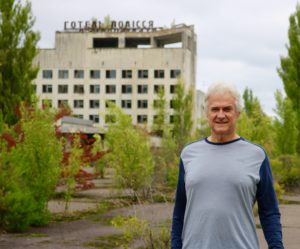Morocco is truly a magical kingdom! It is a crossroads between Europe and sub-Saharan Africa.
Our recent family tour was the adventure of a lifetime. We simply never knew what we would see next!
The population is friendly and respectful and their religion presents as moderate Islam. We interacted mostly with Berbers who comprise 40 percent of the 33 million inhabitants.
The French, it seems, continue to view Morocco as their playground. We lunched poolside at a chic Marrakesh hotel where the French glitterati abound and I hiked on the coast with several retired French couples, down for New Year’s.
When asked about the previous French occupation, Moroccans told me it was both “good and bad.” Apparently the “good” was the modern infrastructure developed by the French. The “bad” was a lack of respect for Moroccan religious traditions. Islam is not simply a religion; it is a complete way of life that infuses the entire society.
For many centuries, a large Jewish community lived peaceably in Morocco. With the various expulsions in Europe, many of the best and brightest moved to Morocco, including Spain’s renowned physician, Maimonides. During World War II, the Moroccan ruler apparently refused to turn the Jewish population over to the Vichy government of France.
For the first 2 weeks, an adventure tour company was our guide; the last week we spent near the beach and later in a Kasbah—fortress—high in the Atlas Mountains.

Our itinerary was varied and included great accommodation in former riads—traditional Moroccan noble homes with interior gardens, and caravanserai—traditional homes with interior courtyards to shelter camels.
The topography of that small country is ever-changing. Morocco has several mountain chains, the Sahara Desert, the Atlantic Ocean, and the Mediterranean Sea.
One highlight was Volubilis, the southernmost outpost of the Roman Empire. The Roman ruins include a giant olive press, high columns topped with cranes’ nests, beautiful mosaics, and ancient advertising—stone carvings of bread, wine, and poultry denoting the various merchant stalls.

In the 8th century, Fatima, a Jewish woman, fled Tunisia and helped found the world’s oldest continuous university in the city of Fes, an imperial city with the world’s largest medina—the ancient part of the city. Now a UNESCO World Heritage Site, the medina has remained unchanged since the 12th century. In the serpentine alleyways of the souk—market, the merchants ply their wares in stalls adjoining their workshops. For example, an artisan carving up cow horns sells combs and other horn artifacts.
The souk offers every imaginable purchase—tables laden with nougat, piled high with spices, handcarved metal lamps, olives, handwoven silks, candles, goatskin lamps, and beautifully dyed leather goods. Everything is made by hand—the industrial revolution missed these souks entirely.
Every few moments, you have to dodge the “taxis”—donkeys that squeeze past, piled high with various goods. In Marrakech, motorcycles still abound in the narrow passages of the souks.

Women’s cooperatives are ubiquitous throughout the country. They produce woven goods, rugs, and embroidery and, above all, highly prized argan oil. The lives of women, traditionally isolated in their homes, have flourished through the cooperatives.
The production of the oil is extremely labourious. The drought- resistant argan tree produces a nut that renders a smallish seed.
- Once ground, the baked seed is used to produce cooking oil.
- When ground raw, the seed is used for Moroccan cosmetic oil.

On an eco-hike led by Edouard, a retired French forester, we lunched in the home of Fatima, the head of a local argan cooperative. We enjoyed chicken tagine baked outside in a solar-powered oven—Edouard’s contribution from France.
After lunch, Fatima explained that the husbands initially resisted the cooperatives but soon saw the benefits as the women began using their meagre earnings to improve the lives of their families. Fatima’s cooperative, for example, finances a local high school for girls so they can continue their education.
Edouard underlined the importance of the cooperatives for women’s education; cooperatives bring them together to share ideas and they all benefit. For example, he said they would invite a speaker on birth control and thereafter the speaker’s ideas would be shared and re-shared among the local women. (Google confirms Morocco’s declining birthrate).

One really sobering moment occurred while hiking on a deserted Atlantic beach. The black-tinged sand looked completely normal until a companion explained it was caused by the bilge water of a passing oil freighter. I began to look more closely and noticed the plastic washed up on the deserted beach. There is simply no escaping our industrialized world.
Our trip was a wonderful opportunity for our teenage son to see the way much of the world actually lives—for example, tea in the home of nomads and tea in a home built in the cliff beside a river where the women do their washing. The only “furniture” was a pile of rugs and blankets, but there was a satellite dish outside on the roof.
No visit to Morocco would be complete without a visit to a hamman—think Turkish bath— where they scrub you with black argan soap, rinse you off, then give you a massage with argan oil. It was easy to imagine I was a small child again, being handbathed and coddled.
Later political events aside, we felt perfectly secure in Morocco. Indeed, money found in the wash was returned to several of tour members by hotel laundry staff. Muslims generally do not drink alcohol, which makes for much safer streets and far fewer concerns.
My husband Trevor seemed quite disappointed no one offered to exchange me for camels—or even goats, for that matter! He kept announcing he had arranged this trip to entice me to finally visit Libya next year. Stay tuned for our next adventure!
Judith Milliken QC has practised law for 35 years in the areas of commercial law, criminal law, and most recently estate litigation with her husband Trevor Todd. In her other life, she hosts a family friendly tourist suite for visitors from around the world.
judithmilliken@telus.net



